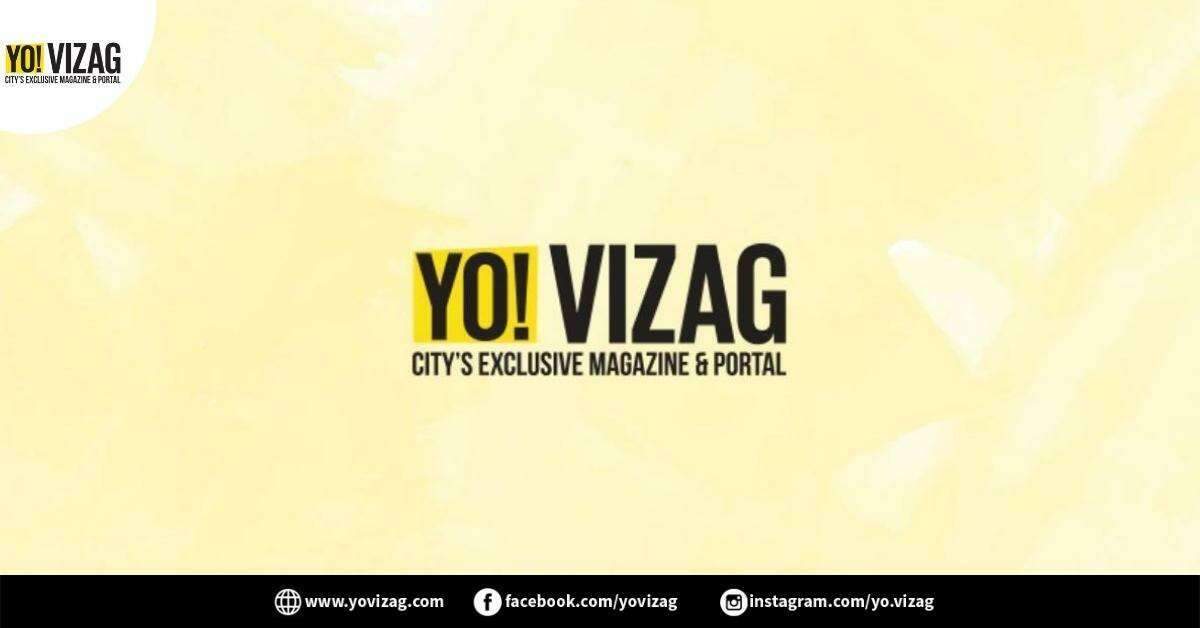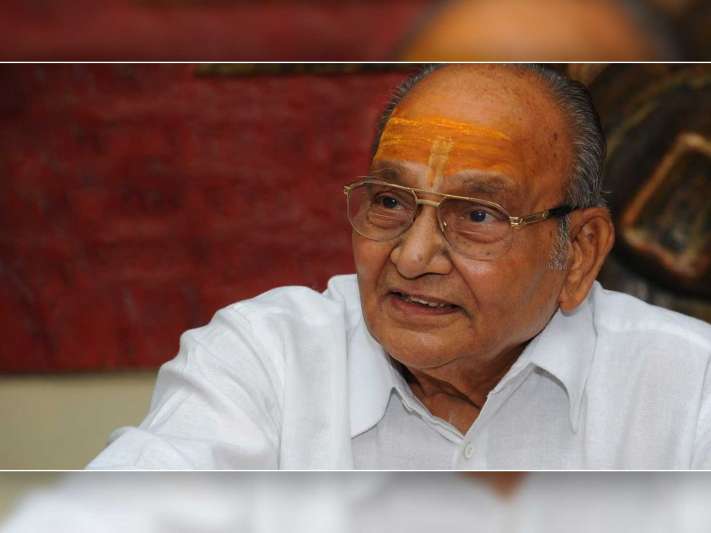

K Viswanath Dadasaheb Phalke Award
Renowned film-maker and actor K Viswanath has won the Dadasaheb Phalke award for the year 2016. The award is in honour of his outstanding contribution to the film industry. With five national awards to brag of, there couldn’t be a more befitting recipient of this award.
It has been said that Rakesh Roshan, father of Hrithik Roshan, after the success of ‘Koi Mil Gaya’ had stated, “I can say my son is a good actor if K Viswanath makes a film with him.” Such is the respect and awe the ace director, Padmasri Kasinadhuni Viswanath has generated over the years. Known for his classy films which often focused on culture, dance and music; he dared to be different. Never treading the same beaten path again, each movie he created was a masterpiece in its own right. Many of his iconic movies like Sirisiri Muvva, Saptapadi, Shankarabharanam, Sagarasangamam and Swati Kiranam awed not only the critics and connoisseurs of fine cinema; they were widely recognised box office hits too.
He forayed into the film world as a technician, an audiographer in veteran filmmaker B N Reddy’s Vahini Studio in the late ’60s. Subsequently, he tried his hand at direction and soon made his mark in the Telugu film industry.
With numerous awards, accolades and successful movies to his credit, the amiable elderly gentleman claims to be ‘retired’ now. When in the city a few years ago, he genially interacted with the Yo! Vizag team.
You have created many landmark movies over the years. What do you feel about your own movies when you look back?
More than what I feel about my own films, what others feel about it, the feedback that I receive matters. Sometimes when I look back, I feel… did I really make such a movie? How did I create it? Was it God who directed my efforts? It is not that I consider myself to have made a great movie; I truly wonder how I got that very idea itself. I feel I am a blessed soul. God has been very very kind to me to have provided me with so many different types of thoughts that I could recreate on the canvas.
What inspired you to get into direction?
I started working as a technician in a film studio primarily to earn a livelihood. In due course, based on the suggestions I used to offer, somebody suggested that since I had creativity and talent why not pursue something in the directorial line. Eventually I did get a break as a director and continued as a director. But then I felt that I should not be routine or monotonous. I wanted to be a bit different, a bit out of the ordinary. At the same time, I felt I should promote our culture and heritage. With that in mind, my thought process focused on that aspect and movies like Sankarabharam and Sirsiri Muvva came about.
There is a lot of emphasis on classical song and dance in your movies, how close is music and dance to you?
Though I wanted to learn music or dance, God did not make me proficient in any of them. Generally we crave for what we lack. Also, I felt the urge to create an awareness regarding music and dance. Hence I pursed on those lines and created movies on those subjects.
Do tell us about your experiences with the Hindi film industry.
I made quite a few Hindi movies, but my mainstay is the Telugu film industry. I have worked with Laxmikant Pyarelal, R D Burman, Anand Milind and many others. I never had any dissatisfaction with either industry. I have no complaints. If anything, work in the Hindi film industry is more leisurely.
What about your on-screen presence. What inspired you to get into acting?
When I was making Shubha Sankalpam with Kamal Hassan and S P Balasubramaniam, we were discussing who would play the character of Rayudu in it. I suggested many names, but they both rejected. Finally, I gave them an ultimatum and asked them to suggest somebody as we had to finalise the dates. That’s when in chorus they both suggested that I do the role. It turns out that when I had first narrated the story to them, I had voiced a dialogue of that character. They caught on to that and decided then itself that I would have to play the role. After that, I got many more offers.
Was acting and directing at the same time tough?
It was very difficult. Not only direction, acting or writing script and dialogue; taking care of so many aspects was tough. But at that point, it was the excitement and interest that kept me going.
How do you pick on a subject or storyline?
I usually pick a very normal character. An existing, ordinary, nascent character. I do not write about super-human or larger-than-life characters. When I was in Kuwait I was introduced to a well dressed lady who was very happy and excited to meet me. It turns out that she was a cook for various households there. Since I was coming, the family she worked for had brought her along as well. I was taken aback by the way she had adapted, and the way they treated her like a family member. She is a character on which I could create stories. Her trials, tribulations, pain and happiness… That is how I identify my main character, anybody from ordinary life. Once I decide on the basic story, I try to incorporate music, art and culture. Like a character in Swathi Kiranam sells idlis but encourages his son to become a classical singer. I also try to showcase artists of extinct art forms.
Did you have any influences which reflected in your movies?
No. Generally, it is only observation and intuition. I believe in intuition because I am not a well-educated man. I had no exposure to say, TV or books. It is solely my intuition and God’s grace. Everything is His creation. I am only a tool. He just gives me the spirit, inspiration and strength when I write. I believe that there is a super being, a higher power that guides me.
Amongst all your movies, which was the movie that you enjoyed making the most, or which affected you the most?
I would rather talk about the movie which gave me a lot of pain… Sirivennela. It was a subject that was most difficult to handle, that of a blind man and a dumb girl. It was a subject that was very difficult to portray, very difficult to write the screen play and create the scenes. I had no problems from either the production team or the artists, it was the script itself that caused so much of pain. It was my own creation. The pain was self-inflicted. That was the most difficult subject that I ever handled till now. And now, I can say that I am very proud of it. Unfortunately it is a Telugu film; hence it did not get the attention of journalists and critics nation-wide. If it were a Malayalam or Bengali film, the publicity would have possibly been more. But I have no regrets.
This post was last modified on 26/04/2017 3:54 pm
Through the never-ending work hustle, there are certain moments of joy, be it with your…
Semi-Ring Road Around Visakhapatnam: In a major infrastructure push, the Andhra Pradesh government has announced…
Election Date Fixed: District Collector M.N. Harendhira Prasad has finalised that the election for Vizag…
Let's be real: life tends to get 5x better when you have an interesting show…
Solo travelling is one of the best ways of travelling. From planning to booking travel…
Vizag is constantly evolving, with developments unfolding left, right, and centre. In this wave of…
Leave a Comment